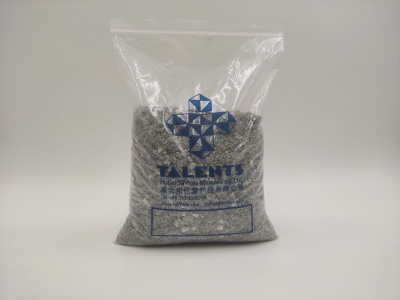Barium Carbonate
It is inorganic compound, white powder, poorly soluble in water, soluble in strong acid. toxic!
formula | BaCO3 | molecular weight | 197.34 |
purity | 99min | appearance | white powder |
CAS NO | 513-77-9 | HS Code | 2836600000 |
Barium Carbonate is a high-purity, versatile chemical compound widely used in industrial processes such as ceramics, glass manufacturing, brick production, water treatment, and chemical synthesis. With its excellent chemical stability and ability to neutralize sulfates and other contaminants, Barium Carbonate plays a crucial role in enhancing the durability and quality of manufactured products.
In this guide, we explore the key properties, industrial applications, benefits, safety guidelines, and sourcing tips for Barium Carbonate to help manufacturers and buyers make informed decisions.
🔬 What Is Barium Carbonate?
Barium Carbonate (BaCO₃) is an inorganic salt composed of barium, carbon, and oxygen. It appears as a white crystalline powder or granule and is insoluble in water but reacts with acids, making it suitable for numerous reactive applications.
Barium Carbonate is manufactured either through the reaction of barium sulfide with sodium carbonate or by direct carbonation. Its high purity and customizable particle sizes make it ideal for industries that require consistent, high-performance raw materials.
🧪 Key Physical & Chemical Properties of Barium Carbonate
| Property | Specification |
|---|---|
| Chemical Formula | BaCO₃ |
| Molecular Weight | 197.34 g/mol |
| Appearance | White powder or granular |
| Purity | ≥99% (industrial grade) |
| Solubility | Insoluble in water; soluble in acids |
| CAS Number | 513-77-9 |
| Melting Point | Decomposes at ~1300°C |
These properties make Barium Carbonate an irreplaceable compound in several precision-driven processes.
🏭 Top Industrial Applications of Barium Carbonate
1. Ceramic Manufacturing
Barium Carbonate is used to eliminate soluble salts (like calcium and magnesium sulfates) in clay bodies, preventing efflorescence and improving the finish of ceramic tiles, porcelain, and sanitary ware.
2. Glass Production
In specialty and optical glasses, Barium Carbonate enhances brilliance, transparency, and resistance to corrosion, while also lowering melting points.
3. Brick and Clay Processing
In clay bricks and tiles, Barium Carbonate prevents the formation of unsightly white patches caused by salt migration, thereby improving structural integrity and appearance.
4. Water Treatment
Barium Carbonate is used to remove sulfates, lead, and other heavy metals from industrial wastewater through precipitation, making water safe for reuse or disposal.
5. Chemical Manufacturing
Acts as a base material in the production of other barium compounds like barium nitrate, barium chloride, and barium hydroxide.
6. Electronics and Magnetics
Used in the production of barium ferrite magnets, essential for electronic devices, speakers, and magnetic storage systems.
✅ Advantages of Using Barium Carbonate
High Purity & Reactivity: Ideal for use in controlled chemical reactions and manufacturing.
Efflorescence Prevention: A must-have additive in brick and tile production for visible quality improvement.
Environmentally Efficient: Helps remove toxic ions from wastewater without generating secondary pollutants.
Improves Product Longevity: Especially in ceramics and glass where durability and clarity are critical.
Cost-Effective: Offers long-term savings by improving process yield and product quality.
⚠️ Safety and Handling of Barium Carbonate
While Barium Carbonate is a powerful industrial material, it should be handled with care due to its toxicity when ingested or inhaled in powder form. Key precautions include:
Use of personal protective equipment (gloves, masks, goggles)
Adequate ventilation in storage and production areas
Avoid mixing with acids unless in controlled chemical reactions
Store in sealed, moisture-proof containers
Always consult the Material Safety Data Sheet (MSDS) before use.
📦 Packaging and Storage Recommendations
Packaging: 25kg/50kg PP woven bags with PE liners or 1000kg jumbo bags
Custom Packaging: Available upon request for bulk orders
Storage Conditions: Dry, ventilated area away from acids and moisture
Proper storage ensures the longevity and purity of Barium Carbonate, preserving its effectiveness across industrial applications.
🛒 Choosing the Right Barium Carbonate Supplier
To ensure quality and consistency, choose suppliers who provide:
COA (Certificate of Analysis) & SDS (Safety Data Sheet)
ISO or REACH certified products
Flexible shipping & global export capability
Technical support & customization options
A trusted supplier guarantees that your Barium Carbonate meets industrial-grade standards and regulatory compliance.
📈 Why Barium Carbonate Remains in High Demand
From ceramics to electronics, the demand for Barium Carbonate continues to grow due to its adaptability and performance in modern industrial applications. Whether you're looking to enhance product quality, streamline chemical reactions, or comply with environmental standards, Barium Carbonate offers a reliable solution.
Its proven effectiveness, wide industrial acceptance, and long-term operational benefits make Barium Carbonate a core material for manufacturers worldwide.





